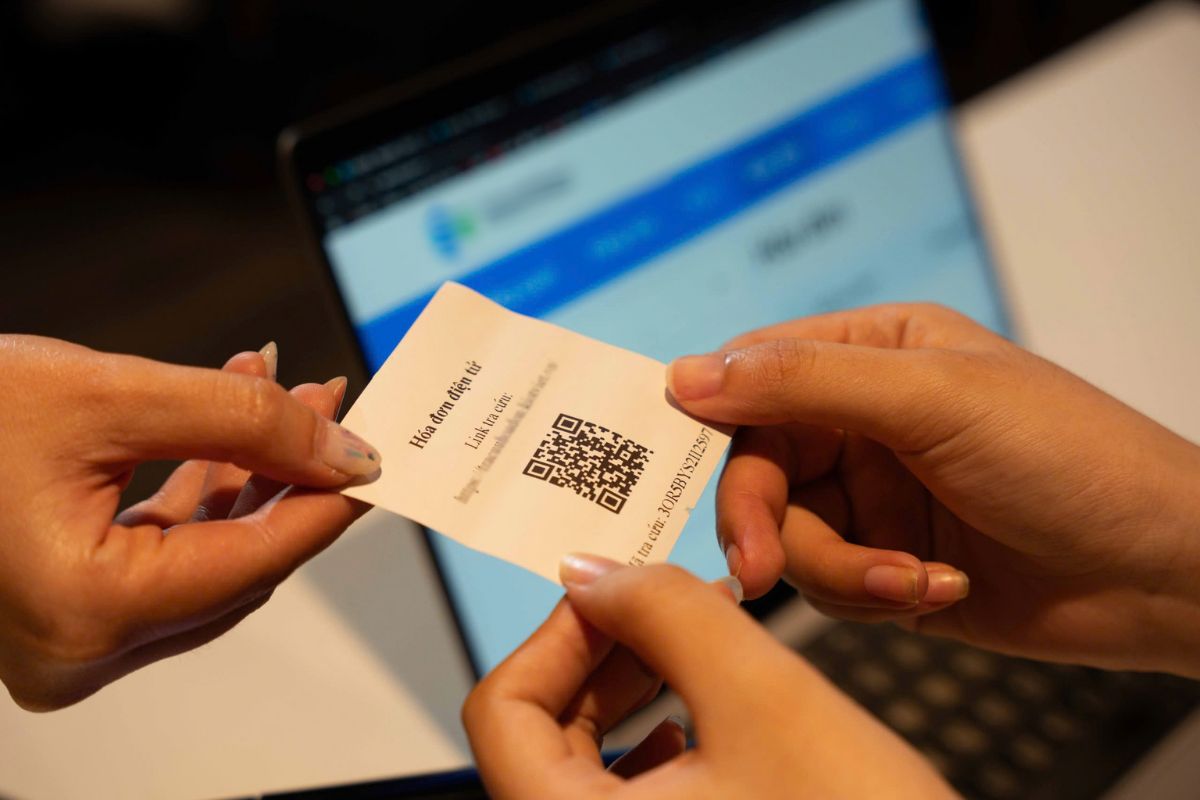According to regulations, a personal bank account subject to tax is almost inevitable when receiving frequent payments for chargeable services. In the context of tax authorities tightening management through the banking system, understanding which items are taxable and why will help you be more proactive in declaring. Let Tuong Phat Land help you clarify when a personal bank account is subject to tax in the article below!
1. Is it true that starting June 1, 2025, your income-receiving account may be treated as a personal bank account subject to tax?

Recently, there has been a lot of confusing information about collecting taxes on all personal money transfers. However, there is currently no legal document regulating the collection of taxes on all personal money transfers from this point on.
According to the Law on Personal Income Tax 2007, as amended and supplemented, only incomes that are on the taxable list as prescribed by law must be declared and taxed. That is, not all money received into an account is subject to tax, but only applies to income from labor, business, service provision, transfer, etc. when reaching the prescribed level.
The tax authority’s inspection of personal accounts is only aimed at preventing fraud and tax evasion in disguised business activities, not at imposing taxes on all people. So, when is a personal bank account subject to tax?
2. 5 types of money transfers into a personal bank account subject to tax
In fact, a personal bank account subject to tax is not uncommon when it receives income classified as taxable under the law. Especially, when the money is determined to be related to business activities, investments or transfers. Here are 5 types of money transfers into a personal bank account subject to tax that you should be aware of:

2.1. Salaries, bonuses and other employment income
Salaries, bonuses and allowances are the most common income groups and also the most easily audited sources of money. In case you are a formal employee, personal income tax has usually been deducted.
However, if you earn additional income from short-term contracts, freelance jobs, or multiple collaborations and still receive payments via bank transfer, a personal bank account subject to tax on undeclared income. And your obligation is to make a tax settlement with the tax authority. All salaries and bonuses transferred via bank accounts will be recorded and become the basis for the tax authority to compare and verify your tax obligations.
2.2. Income from self-employment
Many individuals who sell online, work as freelancers, provide consulting, design, content services, etc. tend to use personal accounts to receive payments. When annual revenue exceeds VND 100 million, that individual is considered to be doing business and is subject to personal income tax and value added tax.
Currently, tax authorities are working with banks to monitor personal bank accounts subject to tax, especially those with frequent, repeated transactions that indicate business activity. Failure to register a tax code or fully declare may result in you being subject to tax audits, collection and administrative penalties.
2.3. Commissions, service fees
Whether you are a real estate agent, a sales associate, or someone who performs cash withdrawals and receives service fees, you are still considered to have income from providing services. This means that you must declare and pay tax if the amount received exceeds the taxable threshold as prescribed.
In recent times, many cases have been subject to tax audits because small “commissions” are considered insignificant. However, if these transactions occur repeatedly and are made via bank transfer, the likelihood of having a personal bank account subject to tax is legally justified.
2.4. Loan interest
If you receive periodic interest from lending money to a business, that interest is considered taxable income and must be deducted at a rate of 5% before it is paid out. Loans between individuals are not currently taxed, but if it is a professional lending activity with regular profits, the tax authorities still have the right to question and demand an explanation.
2.5. Real estate transfer
According to regulations, real estate sellers must pay personal income tax of 2% on the value stated in the notarized contract. However, there are many cases of deliberately declaring low prices to reduce taxes, then receiving the difference through personal accounts.
This behavior carries high risks, as the tax authority has the right to trace the flow of money through a personal bank account subject to tax to determine the actual value. If signs of incorrect declaration are detected, they will re-determine income, collect the missing tax and impose administrative penalties according to the provisions of law.
See more: Real estate tax changes after July 1 2025 province merger?
3. So, what are the amounts of money that are not taxable in personal accounts?

Are you feeling worried and confused? Let’s find out more about 9 cases where personal accounts are not subject to tax:
- Borrowing between relatives and friends: This is a civil transaction, does not generate income, so it is not subject to tax. To avoid misunderstandings, you can clearly state the transfer content as “borrow money”, “borrow temporarily”, “transfer on behalf of”,…
- Receiving money to repay a bank loan: Asking relatives or friends to transfer money into the account to promptly pay off the loan and continue borrowing is a technical activity, not generating personal income. Therefore, a personal bank account subject to tax is not applicable in this case.
- Remittances from relatives abroad: Remittances are amounts of money sent by relatives from abroad that are not only tax-free but also encouraged because they bring foreign currency to the country.
- Collection and payment activities: This case applies when you are a shipper collecting money for goods, a gas station employee collecting money on behalf of a company, or simply a person who is asked to receive and then transfer money back. This is a typical example of a personal account not being subject to tax even if a transaction occurs.
- Transferring/receiving money without charging a fee: Remember that only cases where no fee is charged are exempt from tax. However, if you charge a fee (even a small one), that income may result in your personal bank account being subject to tax as service income.
- Taxable income from selling a house: When you have fully paid taxes when transferring real estate (personal income tax, registration fee), the amount of payment received afterwards will not be taxed again.
- Tax-deducted salary: You receive a salary from a company that has had its tax fully deducted, so when this amount continues to be transferred to relatives, the recipient does not need to declare it further.
- Overseas salary with local tax: Employees who are working abroad and have paid full taxes in the host country will not be subject to personal income tax when transferring money back to Vietnam.
- Lending money to friends or family: With low or occasional interest is considered a civil transaction, not a business activity, so it doesn’t fall under the category of a personal bank account subject to tax according to current regulations.
4. If you receive a real estate gift, is a personal bank account subject to tax?

The answer is YES, if you are not exempt from tax. Specifically, according to Clause 10, Article 3 of the Personal Income Tax Law 2007, the recipient of a gift of real estate (such as a house, land,…) will have to pay personal income tax because this is considered taxable income.
However, the law also stipulates a number of tax exemption cases in Clause 4, Article 4, such as gifts between husband and wife, parents and children, grandparents and grandchildren, siblings, etc. Therefore, if you are given real estate, you should clearly identify the relationship between the giver and prepare appropriate documents to avoid unwanted tax obligations.

A personal bank account subject to tax is no longer rare, as tax authorities are increasingly monitoring electronic transactions. So don’t be careless! Follow Tuong Phat Land to keep up with useful information on other cases where a personal bank account subject to tax in upcoming posts!
Contact info:
Hotline: 0909.61.45.69
Website: https://tpapartment.com/
Fanpage: https://www.facebook.com/tpapartmentvn
Youtube: https://www.youtube.com/@Tpapartment





